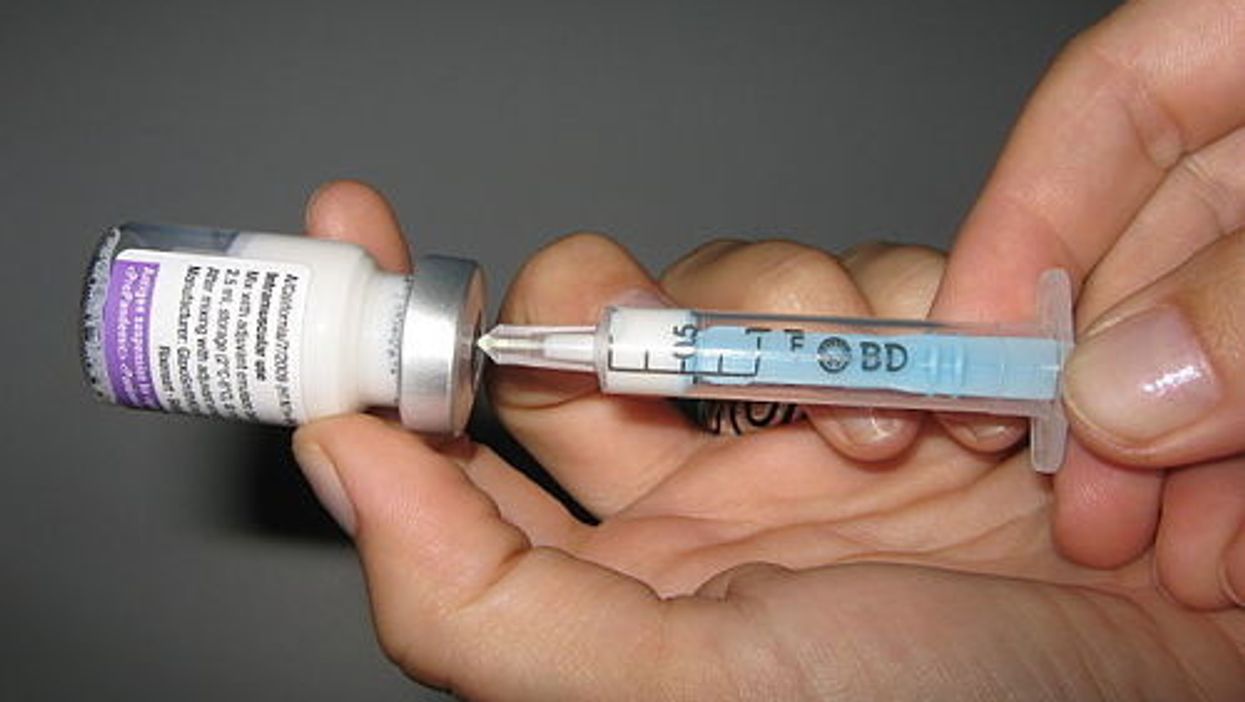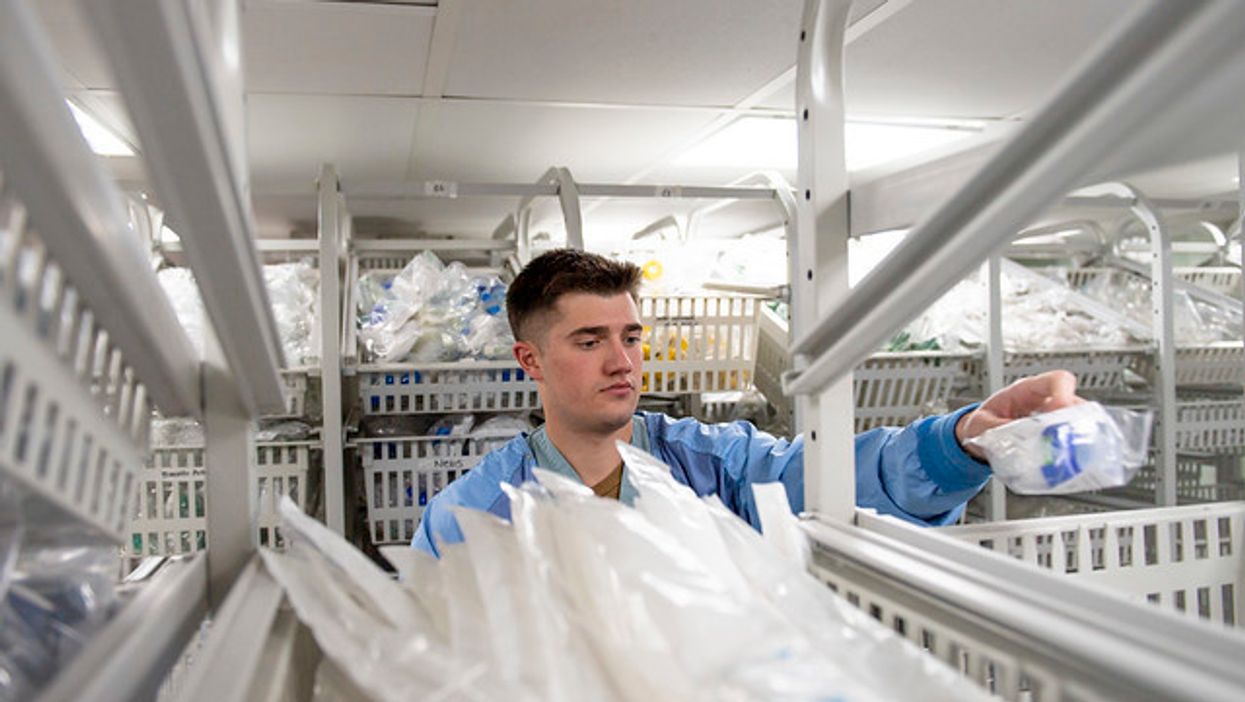How Congress Encouraged Big Pharma To Blackmail America
Reprinted with permission from DCReport.
The $2.2 trillion coronavirus relief bill that Congress hastily passed and Donald Trump signed into law deliberately creates new price gouging opportunities for drug companies.
Left out of the relief bill was language from a 1980 law that requires drug companies to charge "reasonable" prices for pharmaceuticals developed with government financial help. Companies that charge unreasonable prices, or hold back on making their inventions available, can be stripped of monopoly rights.
Without this language companies that develop coronavirus vaccines or cures using federal funding can jack up prices for any COVID-19 cure or vaccine with no legal limits. Imagine the price gouging possibilities for a life-saving vaccine or cure. All other countries with modern economies have laws to protect against price gouging.
The message to those who can't afford expensive vaccines and cures: Tough luck because if you get sick you may die.
Unless Congress and the Trump administration enact a new law to protect the public from price-gouging expect drug companies to charge the highest monopoly price that they can extract from government, health insurance firms and individuals. The message to those who can't afford expensive vaccines and cures: Tough luck because if you get sick you may die.
'March-In Rights'
The missing language is from the 1980 Bayh-Dole Act, named for two senators. It regulates the monopoly patent rights when inventions are developed with taxpayer funds. A reference to the 1980 law has been routinely included in numerous new laws over the past four decades to protect taxpayers and consumers. But not this time.
This power is known as a "march-in right" because our government can march in, take possession of the intellectual property needed to make a drug and then transfer it to other companies that promise to charge lower prices.
Any company that loses its patent monopoly this way can sue to determine how much money it is owed. What it cannot do is delay the taking of its intellectual property, a crucial power to act swiftly when lives are at stake.
Senator Elizabeth Warren (D-Mass.) is a proponent of using the Bayh-Dole Act to control drug prices, which in America are often multiples of what companies charge in Canada, Europe and Japan.
While seeking the Democratic party nomination Warren said repeatedly that were she to become president "I will use march-in rights." Trump has this power but has not exercised it despite his oft-repeated promise to bring down spiraling drug prices.
Stopping Bayer's Gouging
Just the threat of exercising our government's march-in rights persuaded Bayer, the big German drug and chemical company, to lower the price of a critical, and expensive, antibiotic during the anthrax crisis shortly after 9/11 in 2001.
Our government wanted to stockpile Bayer's Cipro pills after anthrax powder was found in letters sent to Congress and some news organizations. Bayer wanted to charge outrageously high prices.
The Coronavirus Aid, Relief and Economic Security Act, or CARES Act, that Trump signed last month doesn't include Bayh-Dole safeguards.
Instead, it uses a different standard regarding research and development grants from taxpayers, called Other Transaction Authority or OTA.
OTA has just begun popping up in government grants to private industry in recent years, according to the international corporate finance adviser BDO.
That the relief bill applied the Other Transaction Authority rather than the Bayh-Dole language means that someone knew what they were doing. It means someone or some group set out to enable profiteering by drug companies that accept federal grants to develop cures and vaccines for the coronavirus.
Because of the way the bill was rushed through Congress without hearings we don't know which senators, representatives, Trump advisers or most likely Big Pharma lobbyists saw to it that the bill would enable price gouging.
Another Bill With Price Gouging Potential
The OTA language is also in another law bill, the proposed Take Responsibility for Workers and Families Act. That bill, announced by Speaker Nancy Pelosi and sponsored by Rep. Nita Lowey of New York, a Democrat, was sent to the House Appropriations Committee.
The Washington think tank KEI (Knowledge Ecology International) was first to spot the Other Transaction Authority language in a CARES Act draft. KEI Counsel Kathryn Ardizzone wrote, "The House coronavirus stimulus bill contains a troubling provision concerning the use of Other Transaction Authority to fund coronavirus diagnostics. The provision appears to authorize the Department of Homeland Security (DHS) to award $2.2 billion to private sector companies to develop coronavirus screening measures without assurances there will be the public interest protections that currently exist, even if under-utilized, in the Bayh-Dole Act."
On March 23, KEI sent a letter to Pelosi, warning that Senate's draft version of the coronavirus funding bill would expand the authority of a division of the Health and Human Services Department to enter into "Other Transactions" for R&D funding agreements in the case of public health emergencies without protecting taxpayers' investment in government-funded research and development.
KEI and its founder, James Love, have been asking the government for years to invoke march-in rights to lower pharmaceutical prices for life-saving medicines, including some for HIV/AIDS, prostate cancer and for rare and deadly childhood diseases like Duchenne Muscular Dystrophy. KEI confirmed they are talking with key senators and representatives who support members march-in rights.
Abusing 'Orphan Drug' Status
One big drug company, Gilead Sciences, already tried to profiteer off the CARES Act.
FDA officials authorized a windfall for Gilead Sciences by granting "orphan drug" status for its old anti-viral drug Remdesivir. That status gives the company a seven-year sales monopoly and a basket of tax breaks.
A host of Trump administration officials including the commissioner of the Food and Drug Administration expressed shock that someone had granted this lucrative benefit, insisting they knew nothing about it or who was responsible.
Gilead developed Remdesivir for fighting the Ebola virus, which kills quickly. The company received some $79 million from our federal government.
Orphan drug benefits are supposed to go to companies who agree to develop drugs that treat "rare diseases." Our government's standard for rare disease is that there are fewer than 200,000 diagnosed cases nationally, too few customers to make profitable development of a drug.
The absurdity here is that Gilead won approval for a drug for a pandemic that could reap more than $1 billion for the company in a year according to The Motley Fool.
The gift to Gilead was particularly upsetting because the company has been racking up hundreds of millions of dollars in sales from its high-priced Hepatitis C drugs, which were also developed using millions of taxpayer dollars.
Within 24 hours of that orphan drug surprise making headlines, Gilead announced that it had asked the FDA to rescind the orphan drug status for Remdesivir.
However, it is still unknown whether the Trump administration, which is supporting Gilead's efforts to prove Remdesivir works for COVID-19, will demand Gilead charge an affordable price.
But that's just one example we know about.




